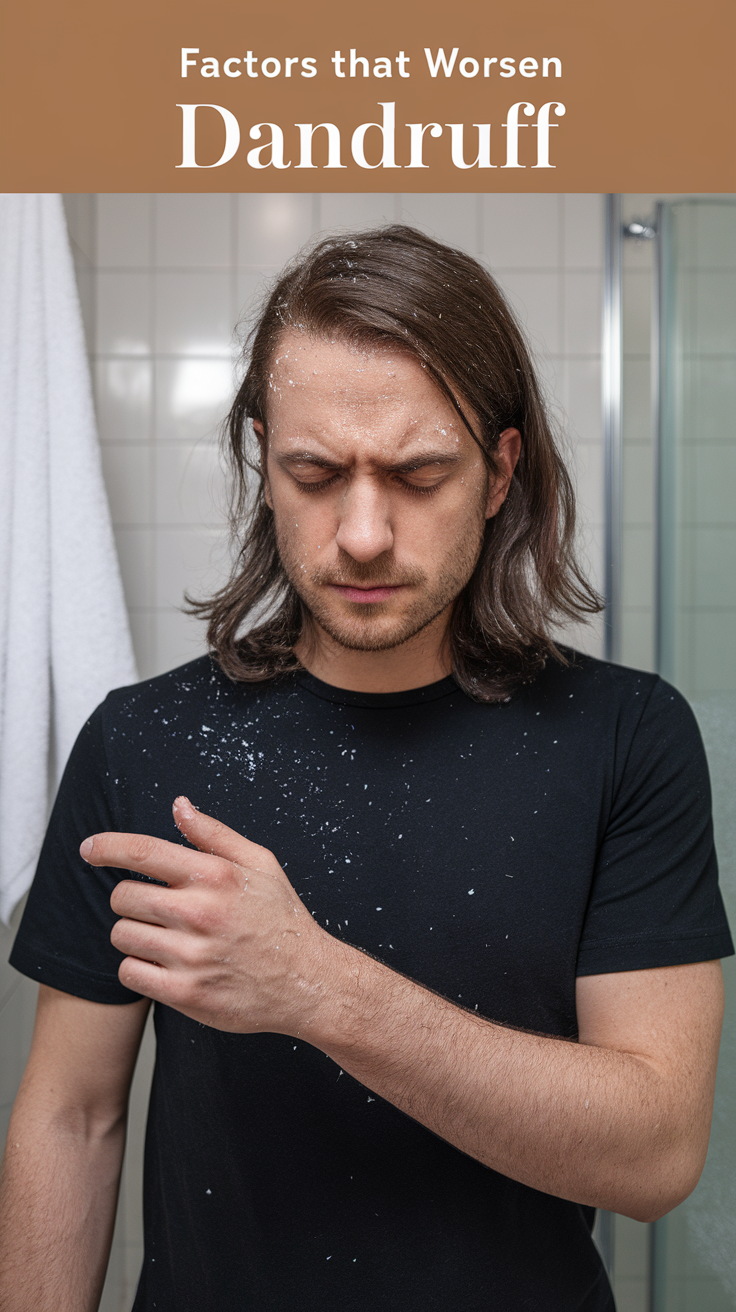What Causes Dandruff in Hair
Have you ever noticed those annoying white flakes on your shoulders and wondered what’s causing them? Dandruff is a common condition, but it can feel overwhelming to deal with. On my journey to understanding scalp health, I’ve discovered the critical factors behind dandruff and how to manage it effectively. Let’s explore the reasons behind those flakes and find solutions that truly work.

What Causes Dandruff?
Overgrowth of Malassezia
Dandruff often begins with an overgrowth of a naturally occurring fungus called Malassezia. While it’s harmless in small amounts, when it grows excessively, it feeds on scalp oils and releases byproducts that irritate the skin. This irritation increases skin cell turnover, resulting in flakes.
Quick Reference Table: Causes of Malassezia Overgrowth
| Trigger | Effect on Scalp |
|---|---|
| Excess oil production | Feeds fungal growth |
| Humid weather | Promotes fungal activity |
| Poor scalp hygiene | Allows buildup of oils |
Seborrheic Dermatitis
A major cause of dandruff, seborrheic dermatitis, is characterized by greasy, red patches of skin covered with flaky white or yellow scales. This condition thrives in areas rich in oil glands, including the scalp.
Dry Skin
Dandruff caused by dry skin typically produces smaller, less oily flakes. This often occurs during winter months when the air is dry and cold.
Comparison of Dandruff Causes
| Cause | Flake Appearance | Key Indicators |
|---|---|---|
| Malassezia overgrowth | Large, oily flakes | Greasy patches |
| Dry skin | Small, dry flakes | Scalp feels tight |
| Seborrheic dermatitis | Yellow or white flakes | Redness, itching |
 Sensitivity to Hair Products
Sensitivity to Hair Products
Some people develop dandruff due to contact dermatitis, which is an allergic reaction or sensitivity to certain shampoos, conditioners, or hair dyes. This can cause redness, itching, and flaking.
Factors That Worsen Dandruff
Several factors can aggravate dandruff, making it harder to manage:
- Hormonal Changes: Hormones during puberty or pregnancy can increase oil production, promoting dandruff.
- Weather: Cold and dry weather can dry out the scalp, while hot, humid conditions encourage fungal growth.
- Stress: High stress levels weaken the immune system, making the scalp more susceptible to irritation.
- Diet: Diets lacking zinc, B vitamins, and omega-3s can affect scalp health.
How to Prevent and Manage Dandruff
Choosing the Right Products
Using the right hair care products can make a significant difference:
- Anti-dandruff shampoos containing zinc pyrithione, selenium sulfide, or ketoconazole.
- Products with coal tar or salicylic acid to reduce flakes and remove dead skin cells.
Natural Remedies
Natural remedies can be a gentle addition to your routine:
- Tea Tree Oil: Known for its antifungal properties.
- Aloe Vera: Soothes scalp irritation.
- Apple Cider Vinegar: Balances scalp pH to reduce fungal growth.

Lifestyle Adjustments
- Regular Shampooing: Keep the scalp clean, but avoid over-shampooing.
- Healthy Diet: Eat foods rich in zinc, omega-3 fatty acids, and B vitamins.
- Manage Stress: Practice mindfulness, yoga, or regular exercise to lower stress.
When to See a Doctor
If dandruff persists despite using specialized shampoos, or if you experience severe redness, swelling, or hair loss, consult a dermatologist. These symptoms may point to a more serious condition, such as psoriasis or a fungal infection.
Conclusion
Understanding the root causes of dandruff—whether it’s due to a fungal imbalance, dry skin, or sensitivity to products—can help you tackle it effectively. By using the right products, making lifestyle changes, and seeking medical advice when necessary, you can achieve a healthy, flake-free scalp.
FAQs
1. Can stress cause dandruff?
Yes, stress can weaken your immune system, making your scalp more prone to fungal growth and irritation.
2. How does diet impact dandruff?
A poor diet lacking essential nutrients like zinc and omega-3s can worsen dandruff by increasing scalp oil production.
3. Are natural remedies effective for dandruff?
While not a cure, natural treatments like tea tree oil, aloe vera, and apple cider vinegar can help alleviate symptoms in mild cases.
4. Can dandruff lead to hair loss?
Dandruff itself doesn’t cause hair loss, but excessive scratching can weaken hair roots and lead to breakage.
5. What are the best shampoos for dandruff?
Look for shampoos containing active ingredients like zinc pyrithione, selenium sulfide, or ketoconazole for effective results.
6. Is dandruff contagious?
No, dandruff is not contagious. It is a condition caused by internal factors like fungal overgrowth or dry skin.

